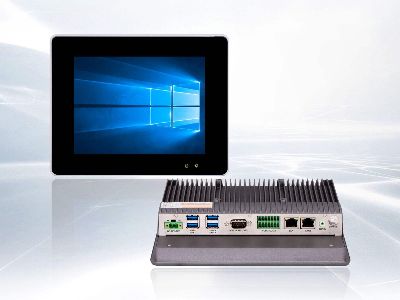Industrial PCs: Powering Productivity in Every Sector
 Lynda Goodmanb
Lynda Goodmanb
Title: Get Productive with Industrial PCs: Revolutionizing Every Sector
The demand for efficient and computing that's reliable industries grows more than ever as technology advances. Businesses need a computing dependable that can handle applications various compromising safety, performance, and efficiency. This is where PCs industrial in to save the day.
Advantages of Industrial PCs
Industrial Panel PC are designed to endure harsh environments where computing traditional fail to operate. They are more robust, resistant to high temperatures, dust, dirt, and vibrations, making them suitable for use in manufacturing plants, oil production, and fields even outdoor. Industrial PCs are easy to integrate with IOT systems and use less energy, resulting in lower costs and energy conservation. They are also efficient and reliable, reducing downtime and productivity increasing.
Innovation in Industrial PCs
Technology is continually evolving, and with it, Industrial PC manufacturers have also adopted innovation to create better machines. Many Industrial PCs are now feature high-performance processors, advanced graphic cards, and improved connectivity options through Wi-Fi, Bluetooth, and other solutions wireless. Also, some of them have touchscreen capabilities, enabling a more intuitive and interface user-friendly.
Safety in Industrial PCs
Safety is a priority that's top in industrial environments where accidents can lead to consequences severe. Unlike traditional computers prone to overheating, Industrial Mini PC have enhanced cooling systems prevent downtime caused by system shutdowns. They are also designed to withstand dust, dirt, and moisture, reducing the risk of system damage and malfunctions electrical. Also, many of these PCs meet safety standards that are set by organizations such as the International Electrotechnical Commission (IEC) and UL.
How to use PCs industrial
Using an Industrial PC is no different from using a computer traditional. The difference is only an Industrial PC is designed to withstand harsh environments and perform specific tasks. These PC systems are used to monitor and control equipment industrial collect data, and automate industrial processes. They are also used in quality control, inspection, and production control. With the evolution of IOT technologies, Industrial PCs can now connect to different sensors, machines, and automation systems, enabling monitoring remote management of industrial processes.
Service in Industrial PCs
Industrial PCs are sophisticated machines that require special skills and knowledge to maintain and repair. They often maintained by experienced technicians who trained to troubleshoot and fix any pressing issues may arise. Manufacturers provide preventive maintenance services to ensure the PCs in optimal condition and system prevent unexpected can lead to downtime. Additionally, they also provide training programs to educate their users on how to operate PCs industrial and effectively.
Quality in Industrial PCs
The quality of Industrial PCs are determined by their ability to perform in harsh environments, the materials are used in their construction, and the compliance of the PCs with industry standards such as CE, UL, and RoHS. Industrial PCs have more quality stringent than traditional computers, ensuring durability long-lasting safety, and efficiency. Manufacturers also perform rigorous inspection and testing processes to guarantee their PCs industrial with these standards.
Applications of Industrial PCs
The use Industrial PCs and Industrial Monitor spans throughout various markets, consisting of automotive, aerospace, oil and gas, and pharmaceuticals. Commercial PCs are used for information collection and evaluation, process control, device monitoring, and automation. In the industry automobile for instance, commercial PCs are used for quality assurance and assembly line. Also, in the industry pharmaceutical these are PCs that are used for process control and information collection.
Subscribe to my newsletter
Read articles from Lynda Goodmanb directly inside your inbox. Subscribe to the newsletter, and don't miss out.
Written by
